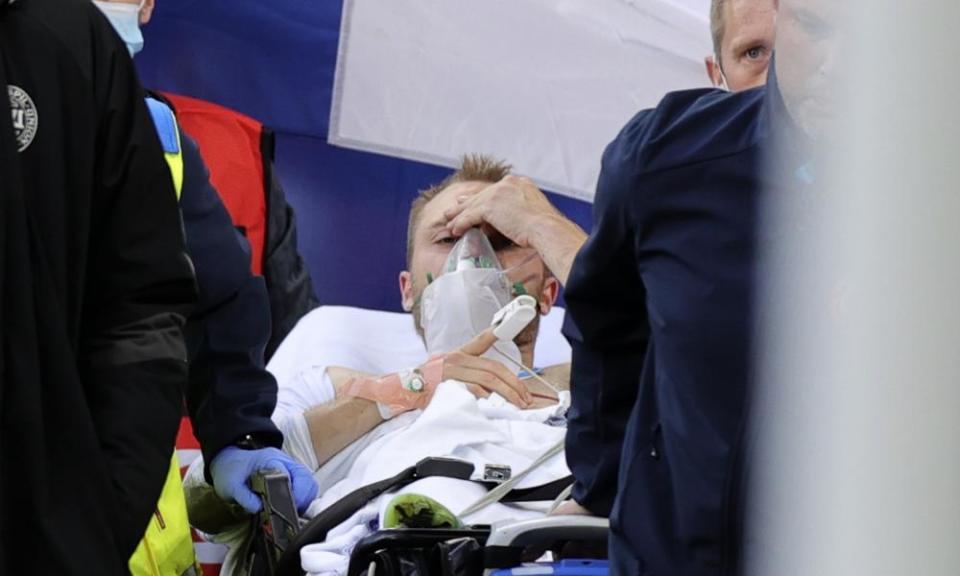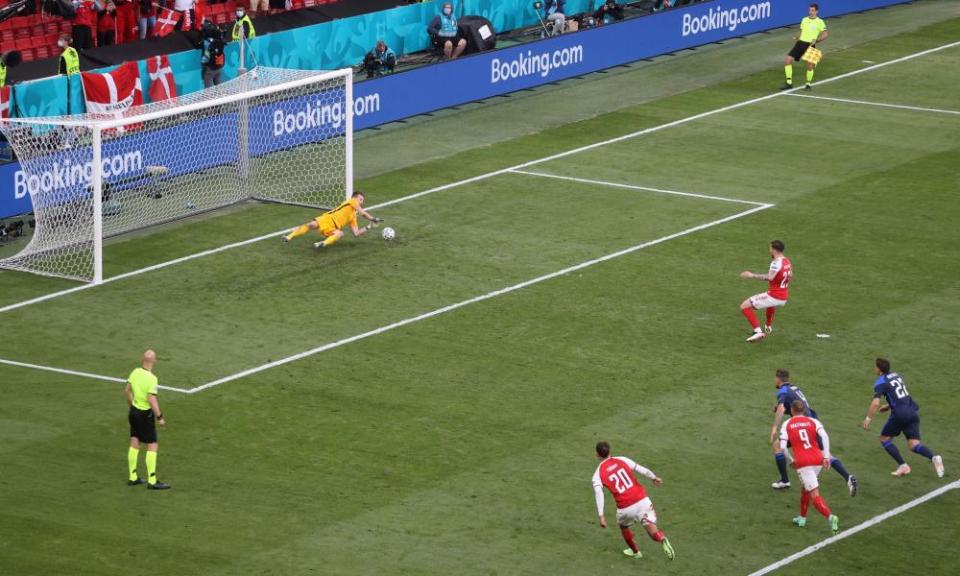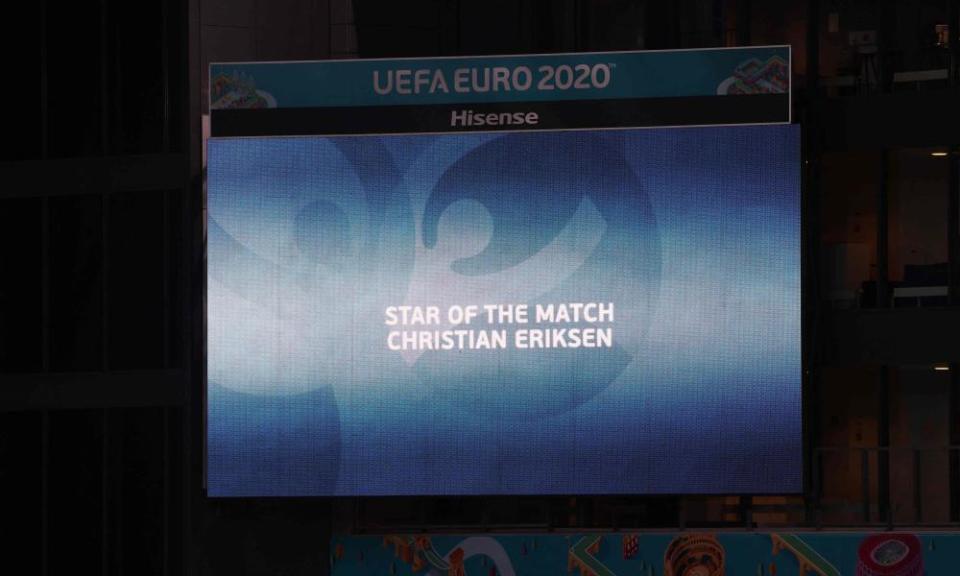Finland’s win against Denmark overshadowed by Eriksen collapse

It was a game that felt simultaneously extraordinarily trivial and hugely significant. When Christian Eriksen collapsed four minutes before half-time, needing CPR on the pitch, it seemed inconceivable – unthinkable – that it could continue. As he lay, limp, surrounded by protective and clearly distressed teammates, there seemed a possibility the tournament might be cancelled.
And yet, an hour and 45 minutes later, they were back. The sight of Mathias Jensen coming on for Eriksen was hugely poignant, a mundane act lent profundity by context. The assumption, even as news came through that Eriksen was awake in hospital, was that this game at least would have to be postponed. Yet the players and coaches, after being consulted in the dressing room, agreed to play on.
Related: Denmark 0-1 Finland: Christian Eriksen awake after collapse – reaction!
That, in turn, perhaps reflected a wider theme of this tournament. Euro 2020 is still called Euro 2020 largely for reasons of marketing, but playing it 12 months later and resolutely sticking to the original name is also a reminder that the tournament itself is a symbol of resilience. Of course it’s possible, perhaps even correct, cynically to see the constant churn of games as indicative of football’s eternal need to generate revenue, but there is more to it than that.

To see fans in a stadium, to sense the expectation, to feel again the thrill of a tournament getting under way has offered a welcome sense of life, at last, beginning to return to normal. The result was one that, under normal circumstances, would have been celebrated as a significant shock, the tournament debutants beating a side widely tipped as possible quarter-finalists in their own stadium.
Who knows what the players were thinking as they decided to play on? Who knows what motivated them? Footballers play football; it may be many preferred the idea of simply carrying on, keeping things as normal as possible, rather than dwelling on the horror they had witnessed. Perhaps some saw it as a way of doing right by Eriksen; Romelu Lukaku paid tribute to him after scoring in the other group game.
And perhaps some deep-lying recognition that this tournament is all about carrying on, keeping things going, for better or worse, gave additional impetus to the desire to play to the finish. As fans waited after the suspension, they had engaged in a call and response of Eriksen’s name, and Finland’s players applauded Denmark’s back onto the pitch.
For Finland, anyway, just being there was an achievement. This was their first ever appearance in a major finals, a giddiness apparent in their smiles and roars as they broke after the anthems. A day that was always going to be memorable for them became unforgettable for a deeply worrying reason.
The conclusion of the first half was understandably tepid, four minutes of both sides going through the motions before a brief half-time. After a five-minute break the game took on a more normal dynamic, although everything still felt muted. And then, from nowhere, Finland took the lead, Joel Pohjanpalo heading in Jere Uronen’s left-wing cross.

Denmark have become a little more proactive under Kasper Hjulmand, but they remain fundamentally a solid team heavily reliant on Eriksen for creativity. They had dominated the very early stages in which Lukas Hradecky, the Bayer Leverkusen keeper, was a skittish presence, never looking comfortable dealing with aerial balls, although he did make a string of saves. None perhaps was a save that he wouldn’t be expected to make, but there comes a point at which the quantity alone is notable.
After a bright start, though, Denmark faded as Finland settled. It was as though the start had been so straightforward, they had allowed themselves to assume the breakthrough would come, and then became impatient and a little ragged when it didn’t. In the final half hour, although they probed, they threatened only rarely. Even when they were granted a generous penalty by the English referee Anthony Taylor, Pierre-Emile Højbjerg’s tentative effort was comfortably saved by Hradecky.
Denmark perhaps felt they had to finish the game, but it’s only natural if they were distracted and the other group games, against Belgium and Russia, should give a far truer reflection of their abilities. Finland, dogged and well-organised, should not be begrudged their celebrations, but this was never about the result.

